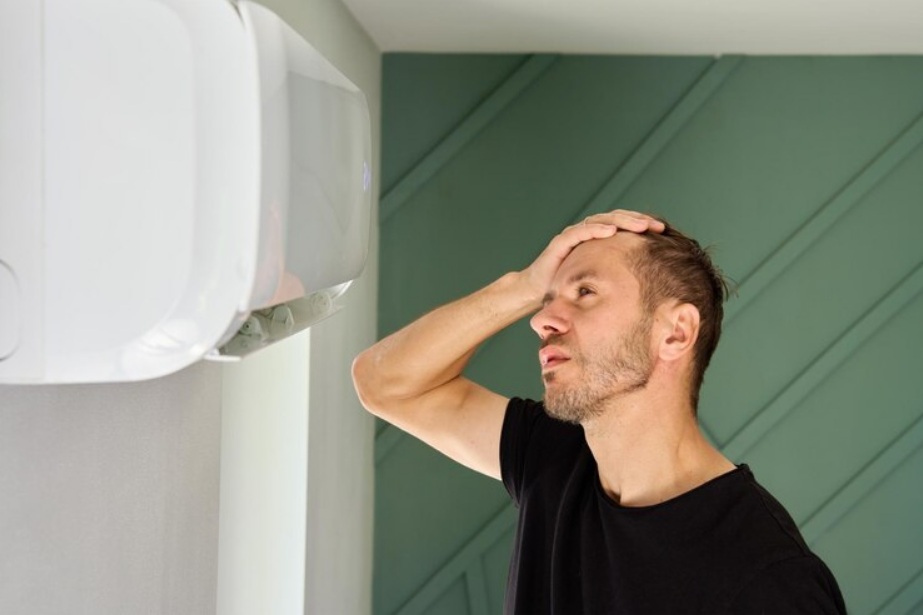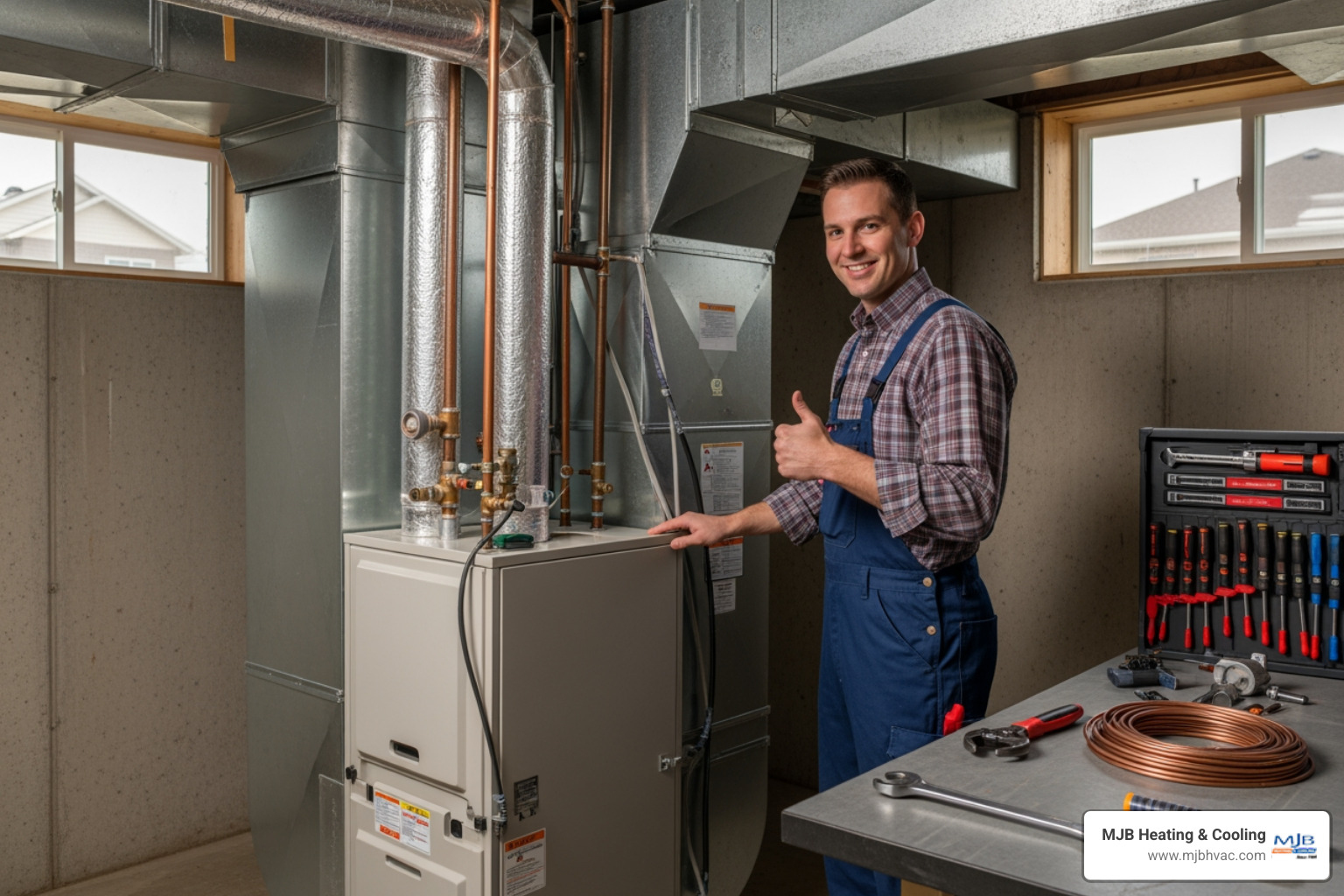


When your air conditioner starts making a strange hissing noise, it can catch you off guard. It is not a sound you expect from a system that is supposed to keep your home cool and quiet. This kind of problem can be more than just an annoyance. It can signal something wrong inside your AC unit that needs attention before it leads to a breakdown.
Haysville homeowners dealing with this type of AC issue may be wondering where the sound is coming from and what to do next. While some noises may be harmless, hissing often points to a leak or malfunction that will not go away on its own. It is something you need to take seriously, especially during high summer temperatures when your cooling system is working hard every day.
Common Causes of Hissing Sounds in AC Units
When an AC unit hisses, it is usually trying to tell you there is a problem developing somewhere in the system. Although some causes are more common than others, each type of issue involves components that need professional attention.
Here are a few potential culprits to consider:
- Refrigerant leaks
Refrigerant leaks are one of the most common causes of hissing in air conditioners. The refrigerant inside your system circulates under high pressure, and if it begins leaking through a crack or loose connection, it can make a soft or sharp hissing noise. Left unresolved, a refrigerant leak can reduce your system’s cooling capacity, raise your utility bills, and eventually damage the compressor.
- Internal valve issues
The expansion valve is a key part of your AC’s cooling cycle. If it becomes faulty or blocked, the pressure might not be regulated correctly. This sometimes causes internal gas movement that escapes with a hissing sound. Because this valve plays such a precise role in the cooling process, any malfunction will affect performance right away.
- Compressor problems
A hissing noise near the compressor can also indicate internal pressure issues. The compressor is the heart of your AC, and if it is under strain or starting to fail, it can release gas or air with a noticeable hiss. This is another problem that can grow worse quickly if ignored.
Recognizing these possible issues helps you take faster action. Keep in mind that noises alone do not provide a complete diagnosis, but they are an important early warning sign to act on.
Immediate Steps to Take When You Hear Hissing
If your AC starts making a hissing noise, there are a few things you can do right away to protect your system and stay safe. Avoid trying to open or fix anything yourself, but do not ignore the problem either. Quick action can help lower the risk of further damage.
Start by following these steps:
1. Shut off your AC unit
Turn off your thermostat and power down your AC system. If the sound is caused by a refrigerant leak or internal pressure issue, running the unit could make it worse.
2. Do a visual check
Walk around the unit and look for any obvious signs of damage or wear. Swelling, frost, or oily spots near the refrigerant line often suggest a leak. Do not touch or move any parts—just observe.
3. Make note of when it happens
Pay attention to when the hissing sound starts. Does it begin right after the unit kicks on, or does it build up after running for a while? Sharing this information with a technician can help make the inspection faster and more accurate.
4. Call for a professional assessment
The next step is to schedule an inspection from trained HVAC technicians. Hissing sounds often signal problems that need specialized tools and knowledge to resolve.
Taking these steps quickly helps prevent minor issues from turning into major repairs, especially during the peak cooling season when your AC is running daily. Early signs like hissing can give you time to solve the issue before you are stuck sweating through a hot summer day without air.
How Professionals Diagnose and Repair AC Units
When a hissing noise comes from an AC unit, our professionals follow a detailed process to find the cause and fix it. An accurate diagnosis saves time, money, and helps restore comfort fast. Every step focuses on safety, performance, and long-term reliability.
Our technicians begin with a complete inspection of the entire AC system. This includes checking refrigerant lines, listening for pressure changes, and using leak detection tools. If refrigerant loss is suspected, we search for the exact source of the leak. Small pinhole leaks or damaged coils are harder to spot without professional equipment, so close attention is paid to every component.
If the compressor or internal valve is believed to be the problem, additional steps are taken. We use pressure readings and system performance data to confirm where airflow or pressure is breaking down. Sometimes, loud hissing may point to compressor head or valve damage that affects internal pressure regulation. In those cases, repairs are done promptly to prevent damage to other components.
The most effective repair methods depend on what our technicians find. These can include:
- Sealing or replacing a damaged refrigerant line
- Recharging the refrigerant supply after handling any leaks
- Repairing or replacing faulty expansion valves
- Adjusting or replacing compressor components
In many cases, catching the issue early helps avoid replacing the full unit or dealing with loss of cool air during a heat wave. Haysville homeowners often tell us they had no idea a soft sound like hissing could lead to bigger issues. That is why having experienced people look at it the moment it starts makes a huge difference.
Preventative Measures to Avoid Future Issues
Once your AC unit is repaired and running quietly again, the next step is prevention. Most hissing issues could have been caught sooner with regular maintenance. Staying ahead of potential problems is much easier than dealing with a full repair in the middle of summer.
Here are a few things Haysville homeowners can do to lower the risk of future AC problems:
- Change air filters regularly to prevent strain on the system
- Keep the area around your outdoor unit clear of plants or debris
- Watch for any changes in how your AC sounds, cools, or starts up
- Schedule a maintenance checkup at least once a year before peak cooling season
These small efforts make it easier to spot wear and tear early. For example, during a routine inspection, our technician found a weak refrigerant line on a unit that was still running quietly. That quick repair stopped a major leak from happening two weeks later during high heat.
By building good habits around seasonal checks and tune-ups, you help your AC unit last longer and work better, especially when temperatures rise in Haysville during August.
Ensuring Comfort and Safety in Your Haysville Home
A hissing AC unit is more than just a strange sound. It is a red flag for homeowners throughout Haysville. Whether the noise comes from a small leak or a deeper mechanical issue, it deserves attention. AC systems play an important role in keeping your home safe and livable during summer. Letting a problem linger can result in higher energy use, reduced cooling, or even a complete breakdown.
Identifying the issue and acting quickly will always be the best approach. Whether it is turning off the system, writing down what you hear, or calling trained professionals to inspect it, each step builds toward a fast, lasting solution. With the right support, you can keep your AC running smoothly, avoid repeat issues, and restore peace of mind during the hottest months in Haysville.
If you're looking to resolve ongoing cooling issues and want a system built to last, explore our AC installation in Haysville to ensure your home stays comfortable through every season. For a quick estimate or to book a service visit, please contact us today to get started with MJB Heating & Cooling.

Customer Testimonials
proudly serving Wichita metro
Our Service Areas include



.avif)


















